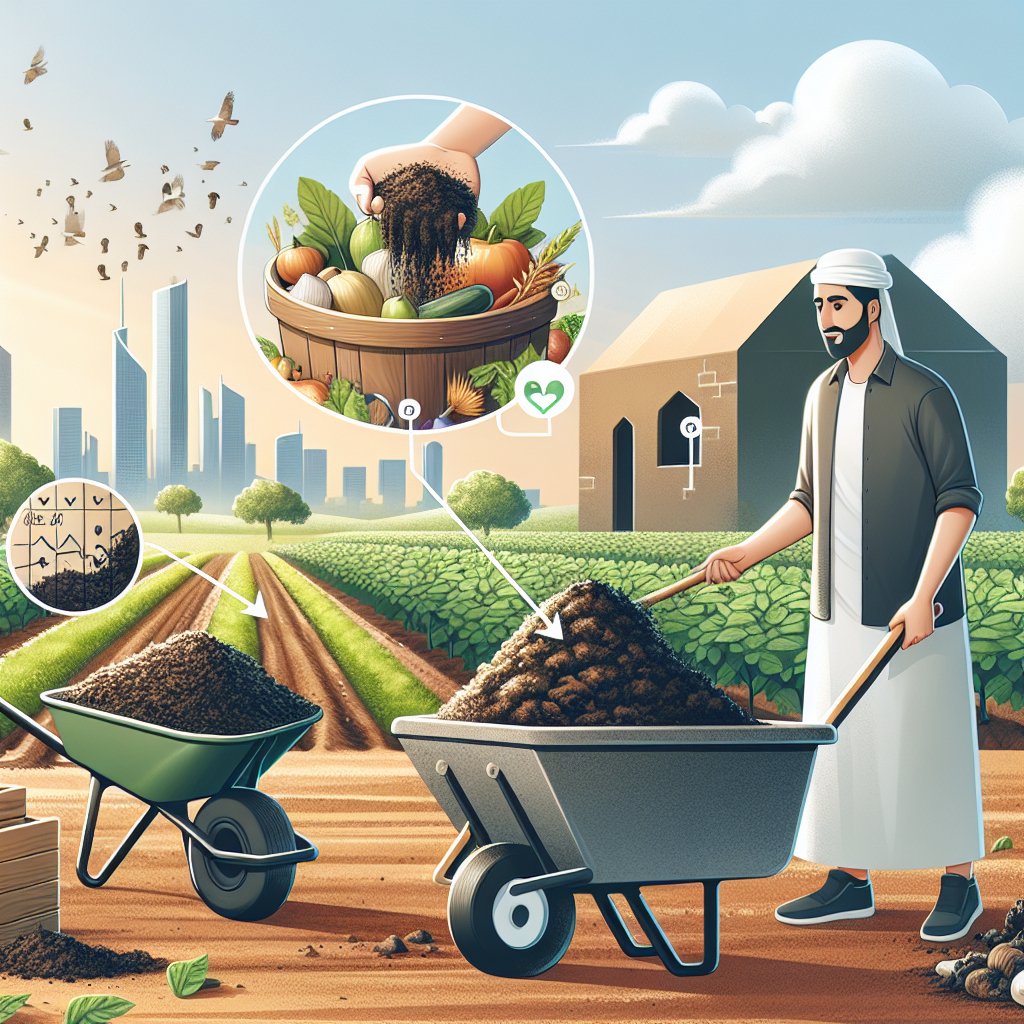Composting is an age-old practice that has gained renewed attention in modern agriculture due to its numerous benefits for farmers. By transforming organic waste into nutrient-rich soil amendments, composting not only enhances soil health but also contributes to sustainable farming practices. This article delves into the various advantages of composting for farmers, exploring its impact on soil fertility, crop yield, and environmental sustainability.
Enhancing Soil Fertility
One of the primary benefits of composting for farmers is its ability to enhance soil fertility. Compost is rich in essential nutrients such as nitrogen, phosphorus, and potassium, which are vital for plant growth. When applied to fields, compost improves the nutrient content of the soil, providing a natural and sustainable alternative to chemical fertilizers.
Moreover, composting helps in improving soil structure. The organic matter in compost increases the soil’s ability to retain moisture and nutrients, which is particularly beneficial in areas prone to drought. Improved soil structure also enhances root penetration, allowing plants to access water and nutrients more efficiently. This leads to healthier plants and, ultimately, higher crop yields.
Another significant advantage of composting is its role in promoting beneficial microbial activity in the soil. Compost introduces a diverse range of microorganisms that help decompose organic matter, releasing nutrients in forms that plants can readily absorb. These microorganisms also play a crucial role in suppressing soil-borne diseases, reducing the need for chemical pesticides and contributing to a healthier ecosystem.
Boosting Crop Yield and Quality
Farmers who incorporate composting into their agricultural practices often experience an increase in crop yield and quality. The enhanced nutrient availability and improved soil structure provided by compost lead to more robust plant growth. Crops grown in compost-amended soils tend to have stronger root systems, better resistance to pests and diseases, and higher resilience to environmental stressors.
In addition to boosting yield, composting can also improve the quality of the produce. Fruits and vegetables grown in compost-enriched soils often have higher nutritional content, better flavor, and longer shelf life. This can lead to increased market value and consumer satisfaction, providing farmers with a competitive edge in the marketplace.
Furthermore, composting can help farmers diversify their crop production. By improving soil health, farmers can experiment with growing a wider variety of crops, including those that may have been challenging to cultivate in the past. This diversification can open up new revenue streams and reduce the risk associated with relying on a single crop.
Environmental Sustainability
Composting is a key component of sustainable agriculture, offering numerous environmental benefits. By recycling organic waste, composting reduces the amount of waste sent to landfills, decreasing greenhouse gas emissions and minimizing the environmental footprint of farming operations. This aligns with global efforts to combat climate change and promote sustainable resource management.
Additionally, composting helps in reducing soil erosion and runoff. The improved soil structure and increased organic matter content provided by compost enhance the soil’s ability to absorb and retain water. This reduces the risk of erosion and nutrient leaching, protecting water quality in nearby rivers and streams.
Composting also contributes to carbon sequestration, a critical process in mitigating climate change. The organic matter in compost captures and stores carbon in the soil, reducing the amount of carbon dioxide in the atmosphere. This not only helps in combating global warming but also improves soil health and productivity over the long term.
Cost-Effectiveness and Resource Efficiency
For farmers, composting can be a cost-effective and resource-efficient practice. By utilizing on-farm organic waste, such as crop residues, animal manure, and food scraps, farmers can produce their own compost, reducing the need to purchase commercial fertilizers. This can lead to significant cost savings, especially for small-scale and resource-limited farmers.
Moreover, composting can help farmers make better use of available resources. By recycling organic waste, farmers can close the nutrient loop on their farms, reducing dependency on external inputs and enhancing self-sufficiency. This can be particularly beneficial in regions where access to agricultural inputs is limited or costly.
In addition to financial savings, composting can also reduce labor and energy costs associated with waste management. By composting organic waste on-site, farmers can minimize the need for waste transportation and disposal, leading to more efficient farm operations.
Challenges and Considerations
While composting offers numerous benefits, it is not without its challenges. Farmers must consider factors such as the availability of organic waste, the time and labor required for composting, and the need for proper management to ensure high-quality compost production. Additionally, farmers must be aware of potential issues such as odor, pests, and contamination, which can arise if composting is not done correctly.
To overcome these challenges, farmers can seek guidance from agricultural extension services, attend workshops, and collaborate with other farmers to share knowledge and resources. By adopting best practices and investing in appropriate infrastructure, farmers can maximize the benefits of composting while minimizing potential drawbacks.
In conclusion, composting is a valuable practice for farmers seeking to enhance soil fertility, boost crop yield and quality, and promote environmental sustainability. By transforming organic waste into a valuable resource, composting offers a cost-effective and resource-efficient solution for modern agriculture. With careful planning and management, farmers can harness the full potential of composting to improve their farming operations and contribute to a more sustainable future.



